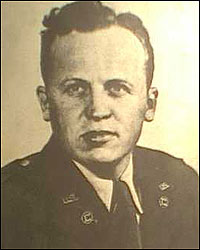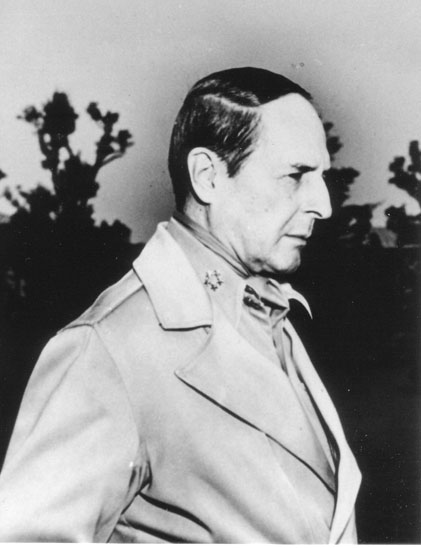About four months ago, Shusli and I were driving by the Baghdad Theater on Hawthorne Boulevard in Portland, Oregon. They were playing "To Kill a Mockingbird." Shusli asked if I had ever seen the movie. When I told her no, her jaw dropped. She asked if I knew what it was about. I informed her that I had no idea. "You have to see that movie. It's about racism."
About two months ago, Shusli informed me that we are eligible for a certain type of loan to purchase a house. This is exciting news, considering we never believed we'd be able to buy our own house. We've gone to classes at the Native American Youth and Family Center about how purchase a home where we were informed on the first day of the two day class that Indians, Native Americans, were not allowed to purchase a home in the Portland, Oregon area prior to 1974. Wasn't the Civil Rights Act signed in 1964? I don't remember.
It is a buyers market out there, and Shusli and I are taking steps to buying our own home, with our own garden, where our landlord won't show up without notice and spray some chemical in the yard that he won't inform me of what it is. Indians could not purchase a house in Portland, Oregon prior to 1974. My mom and dad bought a house in Aloha, Oregon (west of Beaverton) in 1971. Our people, however, were no longer federally recognized at the time. We were legally non-existent from around 1956 (termination) until 1978 (re-recognition). If the statute effected that Aloha area as well, maybe my parents were able to purchase a house because my dad wasn't legally an Indian? I don't know.
I got a hair up my backside and checked out the audio book of "To Kill a Mockingbird," by Harper Lee, as well as the movie with Gregory Peck playing Atticus. Check this out, the 50 year old novel is still on hold by numerous folk at the Multnomah County Library. When I finally received the audio book about a month ago, I listened to it as I headed back and forth to Eugene for my work. The book was read so wonderfully, gloriously, by Sissy Spacek. Jean Louise Finch is the main character's name. She and her brother live in the small town of Maycomb, Alabama where their father, Atticus, is a lawyer. They are poor, and it is in the 1930's during the depression. Jean Louise (Scout), and her brother, Jeremy (Jem), make a new friend during the summers named Dill. They are intelligent and active children. Their father, Atticus, is appointed to defend a black man accused of rape. Of course, the racism that goes on throughout is raw and terrible and well described. The oppression of blacks in the South was horrific. The injustice a normal part of life. (Some things really haven't changed.) Although Atticus proves the man innocent, he is still found guilty by a jury.
I looked up Harper Lee on the internet and found out her novel, still popular 50 years later, was the only novel she ever wrote. She received a presidential award from co-King George a few years back for "To Kill a Mockingbird." I read that she was best friends with none other than Truman Capote. In fact, Harper Lee stated that she designed the Dill character after her best friend Truman. She even helped Truman in his research for his best known novel, "In Cold Blood," about the true multiple murder of the Clutter family in 1959.
 "In Cold Blood" takes place in Holcomb, Kansas, where people are so friendly, or at least were prior to the murders, that they make one and all welcome. They even leave all their doors unlocked. On the morning of November 15, 1959, friends went to pick-up Nancy Clutter to discover her murdered in her bed. Her, her brother, and her parents were all tied up in various rooms of the house and shotgunned in the head. The father, Herb, had his throat cut as well.
"In Cold Blood" takes place in Holcomb, Kansas, where people are so friendly, or at least were prior to the murders, that they make one and all welcome. They even leave all their doors unlocked. On the morning of November 15, 1959, friends went to pick-up Nancy Clutter to discover her murdered in her bed. Her, her brother, and her parents were all tied up in various rooms of the house and shotgunned in the head. The father, Herb, had his throat cut as well.With relatively few clues, a witness comes forward to tell the investigators who he believed did it and why, then the hunt is on. Eventually captured and confessing, Richard Eugene Hickock and Perry Smith were hanged in 1965 for these murders. They got to hang out with a few other mass murderers on Death Row such as Lowell Andrews who murdered three family members in order to have some sort of financial gain. Lowell, it was written about a few years previous, was the nicest kid in Kansas. Latham and York were a couple of their Death Row mates as well. Latham and York, a couple of youth from the military, went on a killing spree across the Southern states killing 7 people before they were caught. Interesting novel, "In Cold Blood."
 Last night, I watched the movie "In Cold Blood." Robert Blake plays the Cherokee Indian, Perry Smith, the trigger man. Robert Blake, who was in "The Little Rascals," the movie "Electra Glide in Blue," and the TV series, "Baretta" (orignally "Toma"), and was arrested and in 2002 for an alleged connection to the murder of his former wife and acquitted in 2005. Weird.
Last night, I watched the movie "In Cold Blood." Robert Blake plays the Cherokee Indian, Perry Smith, the trigger man. Robert Blake, who was in "The Little Rascals," the movie "Electra Glide in Blue," and the TV series, "Baretta" (orignally "Toma"), and was arrested and in 2002 for an alleged connection to the murder of his former wife and acquitted in 2005. Weird.So I looked up the house, as well as other things, about the Clutter murders. I found the house had recently been for sale, but no one would purchase it, so it sits empty. Empty, it is said, except for the possibility of Nancy Clutter's ghost. The house sits empty.
I talked with Shusli last night about the housing market. New housing sales and existing home sales are down greatly in the U.S. Shusli said she heard that one analyst said it will last at least six months like this. During our classes earlier this month, we were told that there will be a second big round of foreclosures in the U.S. from about October/November and lasting about a year because many of the same type of ruthless loans that caused the first foreclosure crisis will be coming due.
And there is a nice house in Holcomb, Kansas, that no one wants to buy, even though folk can afford it, even though it has historical significance.
And thus, a little trip down Hawthorne four or so months ago, has made connections between movies, authors, racism in the South and in Portland, Oregon, us purchasing a house, and recent history.
I smoked a cigarette on our tiny porch yesterday and noticed a spider with an intricate barely visible thread suspended seemingly in mid air, waiting for an insect to feast upon. I looked around the neighborhood, and noticed many webs occasionally shining in the morning light all over, connecting everything.















